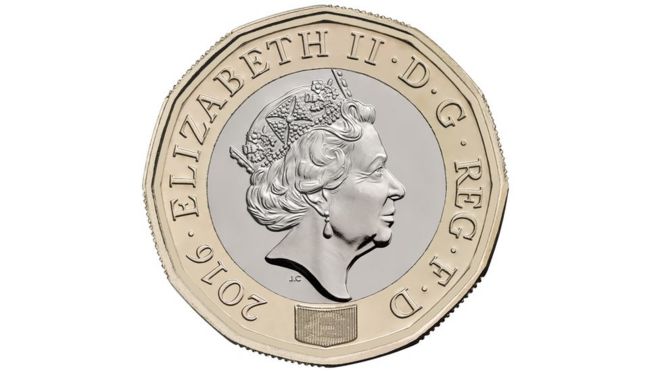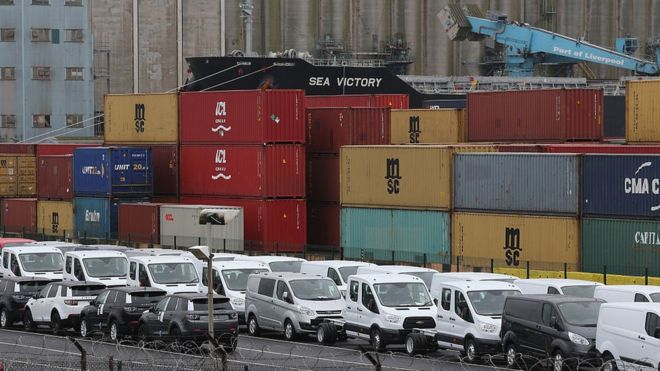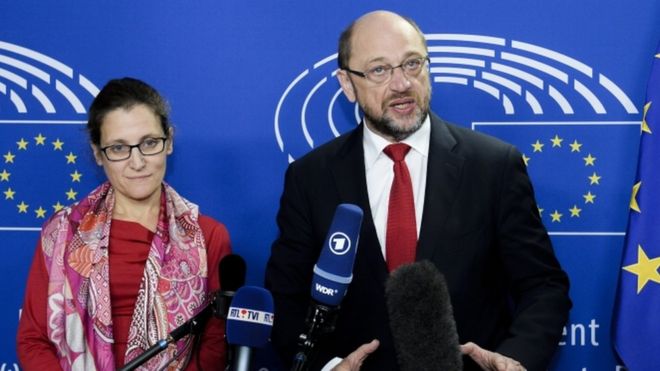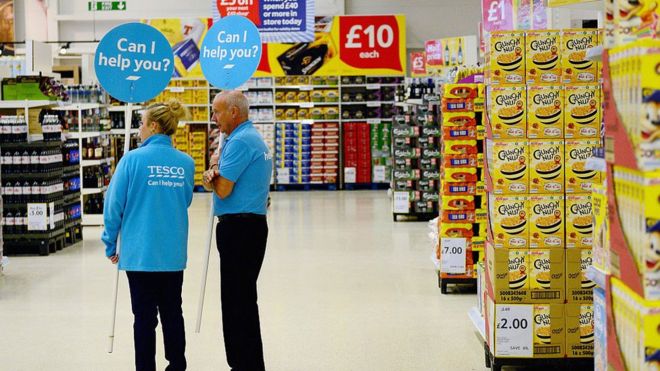
Businesses should get ready now for the introduction of the new 12-sided pound coin, the Treasury has said.
A new website is urging firms to adapt their equipment and train their staff in preparation for the arrival of the new coin in March 2017.
All machines accepting cash, whether it's in exchange for a rail ticket or a chocolate bar, will have to be updated.
But for a six-month transitional period businesses will need to find ways to accept both the old and new coins.
After that the existing round pound coin will be phased out.
The website, hosted by the Royal Mint, suggests that businesses should check before March whether any of their cash handling equipment needs updating, and make sure machines that take payment in coins can handle both the old and the new versions.
They should also consider training their staff "on the features of the new £1 coin", it says.
The new coin is being introduced because approximately one in 30 pound coins currently in circulation is a fake, according to the Royal Mint and the new coins are designed to be harder to counterfeit.
"The new £1 coin will be the most secure of its kind in the world and its cutting-edge features will present a significant barrier to counterfeiters, reducing the cost to businesses and the taxpayer," said David Gauke, the Chief Secretary to the Treasury.
Why the new coin is more secure
- 12-sided - its distinctive shape means it stands out by sight and by touch
- Bimetallic - The outer ring is gold coloured (nickel-brass) and the inner ring is silver coloured (nickel-plated alloy).
- Latent image - it has an image like a hologram that changes from a '£' symbol to the number '1' when the coin is seen from different angles.
- Micro-lettering - around the rim on the heads side of the coin tiny lettering reads: ONE POUND. On the tails side you can find the year the coin was produced
- Milled edges - it has grooves on alternate sides.
- Hidden high security feature - an additional security feature is built into the coin to protect it from counterfeiting but details have not been revealed.
During the "co-circulation" period the website suggests firms should accept both coins and keep customers informed which coins their equipment can accept. Businesses may need to agree with their bank or cash in transit (CIT) provider how to return the current £1 coin and new £1 coin.
After Autumn 2017 businesses should no longer accept the existing round coin from customers and should no longer distribute it themselves. However it will still be possible to deposit the old coins at most High Street banks and the Post Office.



